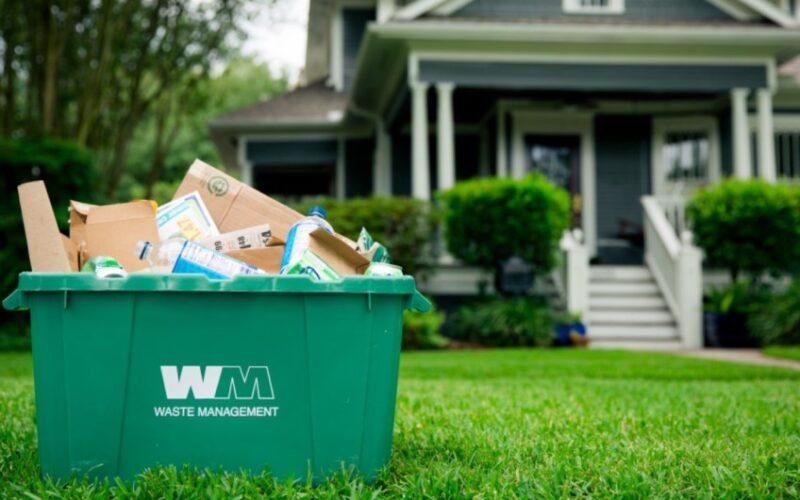The increase in the global population has also increased the amount of waste generated daily. Poor waste disposal practices endanger life on Earth due to ecological damage. Adopting sustainable practices for handling waste can help us reduce our carbon footprint. In this article, we will share some effective waste-handling practices and upcycling ideas that can help you minimize household waste.
-
Set up a Zero Waste Kitchen
The “zero-waste kitchen” approach involves maintaining a kitchen with little or no waste generation. It emphasizes the repeated use and recycling of available resources. Follow these tips and tricks to achieve your goal of completely eradicating kitchen waste.
- Take inventory of your kitchen waste: Assess the waste you produce daily and think about where you can make changes.
- Say no to single-use plastic items: Try to opt for reusable bags, containers, and water bottles.
- Purchase items with minimal packaging: Buy kitchen items packaged in eco-friendly materials.
- Compost: Consider composting food scraps instead of throwing them away.
-
Segregate the Waste
Trash segregation is an essential move toward sustainable waste management. It includes separating daily household waste into different bins. For instance, you can keep separate containers for dry and wet waste. Wet waste includes organic stuff coming from your kitchen, such as:
- Vegetable and fruit peels
- Meat waste
- Leftover meals
These materials are biodegradable and best for composting. On the other hand, dry waste includes non-biodegradable materials like:
- Paper
- Plastic
- Glass
- Metal
- Clothes
Such stuff does not decompose in the soil and mostly includes inorganic materials.
-
Use Household Waste for DIY Recycling Projects
Recycling seems to be boring. But it is a step towards a greener planet and a sustainable future. It can help reduce the amount of waste being dumped in landfills. You can recycle trash to create amazing home decor items.
For instance, you can upcycle a discarded plastic bottle into a bird food dispenser by following simple steps:
Material Required
- Plastic bottle
- 2 wooden spoons
- Bird food
- Piece of string
Method
- Make two holes opposite to each other on the bottle.
- Pass the spoons through these holes. They will serve as perches for birds.
- Fill the bottle with birdseed and secure its cap.
- Hang it on a tree with the string
Making a pencil holder out of toilet paper rolls is another simple yet interesting DIY project from recyclables. Just stick a cardboard circle at one side of the tissue roll and paint colorful patterns, and your pen holder is ready! It can be a striking addition to your workbench or your kids study table. Similarly, you can upcycle tin cans and glass bottles into vases or planters. Just make sure to remove the tin can’s sharp edges while using them for a DIY project.
-
Avoid Using Plastics
You think pandemics are the biggest threat to human existence? What if we tell you that plastics also pose a threat? Plastics do not decompose completely over time. They have the potential to disturb the balance of aquatic and land ecosystems. Therefore, eliminating plastics is the key to a sustainable future. Here are some tips you can follow to help rid the earth of plastic:
- Wean yourself off single-use plastic materials like straws, grocery bags, and cling wrap.
- Do not purchase packaged water. Every year, almost 20 billion plastic bottles are thrown in the trash. Carry your reusable bottle wherever you go. In addition to saving money, it is also good for the environment.
- Avoid purchasing cosmetics containing microbeads. Water purifying units allow these beads to pass through easily.
- Carry your own cutlery for dining out. In this way, plastic disposables won’t be necessary. Also, avoid using plastic chopping boards as they release microplastic in your food.
- Consider buying preloved items. You’ll save a few bucks and the planet will be less polluted.
-
Try Purchasing in Bulk
Bulk purchasing is another practical approach towards effective waste disposal. Bulk products come with less packaging than individual items and reduce the frequency of purchasing. You do not need to have multiple trips to the store, and you also reduce the overall amount of packaging waste produced in the long run. Moreover, most bulk sellers encourage their customers to bring their own containers. In this way, bulk purchasing reduces plastic usage and helps in reducing the environmental impact of human activities.
-
Adopt Minimal Purchasing Habits
Bulk purchasing is another thing but buying more than what you actually need is another. Purchasing stuff more than required speeds up the supply and demand chain, which in turn increases the waste coming along with it. Therefore, adopting minimal purchasing habits allows you to appreciate the resources you already have and use them to their fullest.
-
Incorporate Smart Waste Management Technologies
Smart trash management practices include the use of technology and systems equipped with the internet of things (IoT) for minimizing waste and increasing the efficiency of the waste disposal process. Follow these strategies to consider in this regard:
-
Use Tracking Apps
Install waste tracking apps to track your waste production and disposal habits. Some apps allow you to interact with waste collection authorities thereby ensuring efficient waste disposal.
-
Install Smart Waste Bins
For a smart home, use smart waste bins with waste-level sensors to streamline your household trash management process. Such bins provide data on the type of waste and inform you when they are full.
Conclusion
Waste disposal and management is important for a sustainable planet. Efficient handling of domestic waste can help us achieve that. Therefore, incorporate innovative strategies to manage your household waste in a way that it reduces your impact on Earth. Segregate waste into separate bins, reuse and recycle resources,
